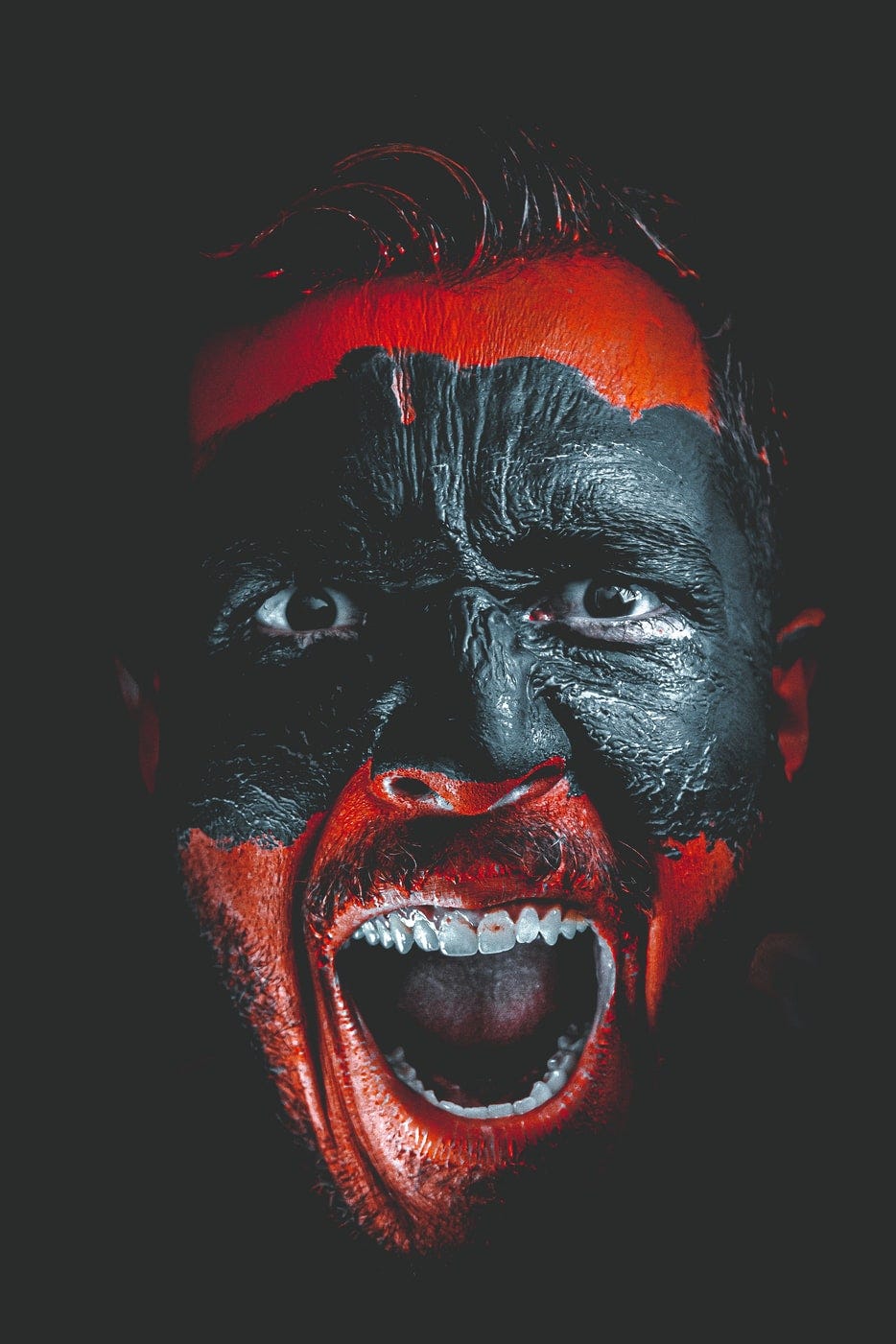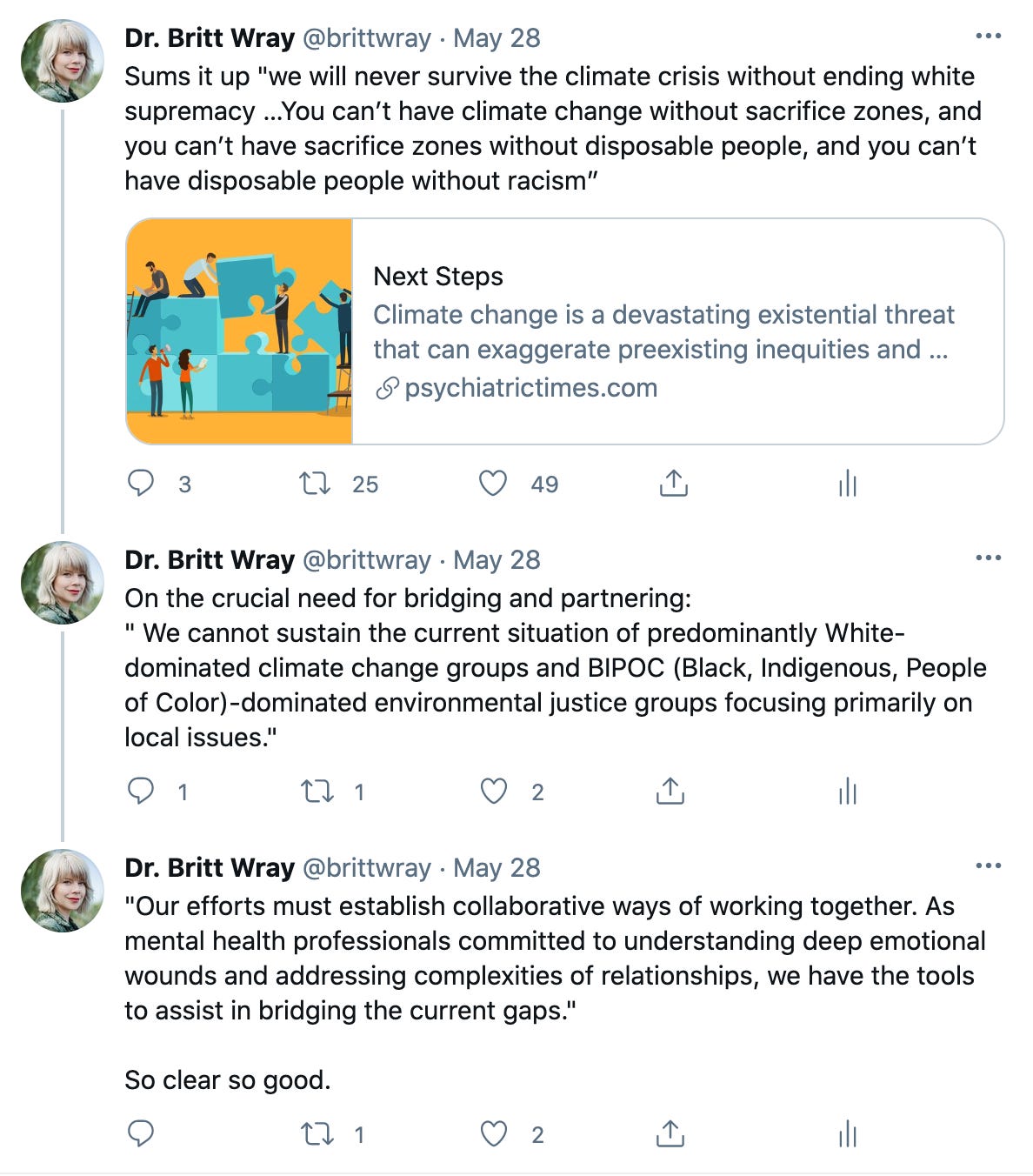Eco-anxiety and the shouting man
A Finnish mental health campaign wants you to scream through your eco-anxiety
Hello and welcome to another dispatch of Gen Dread!
If it’s your first time here, you can snag free biweekly emails about “staying sane in the climate crisis” by hitting that yellow button right there:
I was recently alerted to an interesting strategy for dealing with eco-anxiety that’s emerging in Finland by my colleague Dr. Panu Pihkala, a professor at the University of Helsinki who researches eco and climate anxiety. Over there, in the beautiful land that puts the rest of the world’s saunas to shame, an actor is teaching people to shout out loud as a way of coping with the difficult emotions that can accompany awareness of the ecological crisis. Back in March, Finnish mental health organizations declared an environmental emergency, and (rightfully) identified the climate and biodiversity crises as significant threats to mental health. As part of their declaration, they launched a campaign to bring awareness to this issue, along with “the shouting man”.
Ilkka Hautala, aka the shouting man, told the Finnish 10 o’clock news “Environmental disasters haunt, bee extinction depresses, microplastics in my body. I'm not going to give up! We still have hope! This is a cry for distress for the environment.” While the news report (according to Google translate) unfortunately states that eco-anxiety can be “resolved” by shouting (I’ve written before about why this kind of anxiety is not something to be resolved or overcome but lived with and valued), the shouting man may be onto something. Shouting is a deeply physical activity that opens somatic entryways, and as such, can bring stress relief as part of a larger “mental health workout”. You’ll probably know from personal experience that screaming can be extremely cathartic; it hits a sweet spot where the body and mind’s interconnection is deeply felt.
You can check out the shouting man doing his thing below at 32:20.
Various kinds of therapists have used screaming as a release valve with their clients and patients for decades. Decolonizing therapist Dr. Jennifer Mullan helps people process collective traumas from all sorts of systemic and historical oppressions. She told me in an interview for my forthcoming book that she sometimes invites her clients into a room full of pillows where they can be alone, beat the cushions to a pulp, and scream at the top of their lungs as a way to allow emotions to rise to the surface in a safe and healthy way. It’s not the main intervention or therapy technique she uses, but simply one more tool that can sometimes help.
“Scream therapy” and “primal therapy” don’t come without controversy though, and some mental health experts believe it can hurt rather than help. Reflecting on the national mental health campaign to get eco-anxious Finns to shout through their fears and frustrations, Pihkala says he agrees with the basic idea that shouting can bring relief, “especially if there are serious locks involved in a person’s relationship with his or her anger, which is often the case with environmental professionals and especially women (due to cultural conditioning).” I happen to be both an environmental professional and a woman, and that makes sense to me.
So if you ever find yourself intensely riled up when thinking about our environmental predicament, maybe look for a space where you can be alone and scream at the top of your lungs. If nothing else, it might spark some joy knowing that a man is running around Finland doing the same, cajoling others to join him. “I scream, you scream, we all scream for carbon drawdown - climate justice - and a livable future!” I mean, yeah.
Image credit: Unsplash
Other happenings in mental health and climate change
I want to flag this excellent article that came out last week in the Psychiatric Times which argues that psychiatrists have a crucial role to play in addressing the interconnected issues of racism, climate change, and mental health. Here’s what I tweeted about it. It’s well worth a read (as is the entire series on racism and climate change that this article capped off).
Looking for stories about reproductive decisions
Lastly, here’s a call out from the podcast Climate One, where they are looking for people with stories to share about personal reproductive decisions they’ve grappled with in light of the climate crisis:
Deciding whether or not to become a parent can be a very tough decision, especially for those paying attention to the climate crisis. Climate One, a national radio show and podcast, is looking to talk with people who are weighing this decision in a climate context, or who have already decided one way or another. If you’re interested in sharing your story about how you’re thinking about parenthood in the climate emergency, please contact producer Ariana Brocious at abrocious@commonwealthclub.org, who can provide more details.
That’s it for this edition
As always, you can reach me to tell me what you think of Gen Dread - and reach each other - by commenting on this article. You can also hit reply to this email or follow me on Twitter and Instagram.
Please share this newsletter with people in your life who you think would enjoy it
Thanks for reading along, and have a lovely couple of weeks!
-BW






